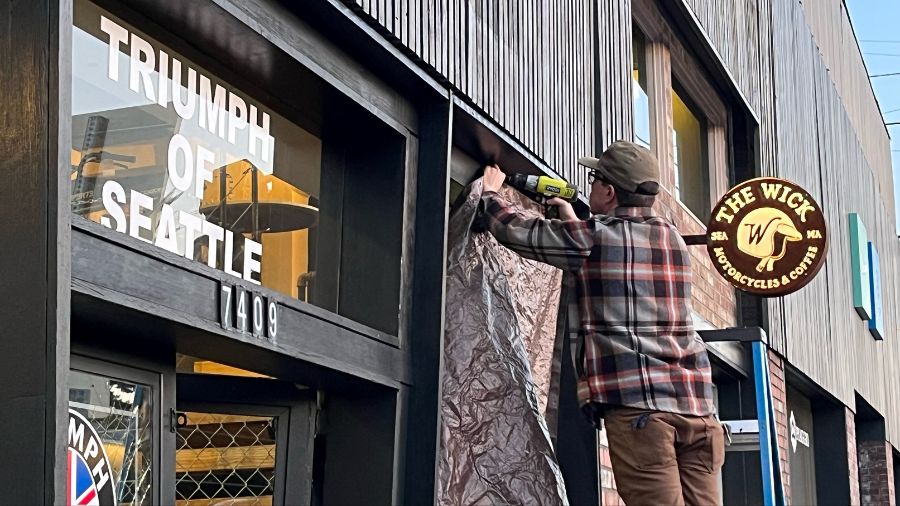Judge rules against Seattle ban on criminal background checks for renters
Mar 22, 2023, 1:40 PM | Updated: 2:14 pm

Washington resident are dissatisfied with the lack of quality, affordable housing. (Photo: Getty Images)
(Photo: Getty Images)
A portion of Seattle’s “Fair Chance Housing” ordinance was overturned by the 9th Circuit Court of Appeals Tuesday after a federal judge ruled it unconstitutionally violated free speech protections.
The 2017 provision prevented landlords from asking prospective tenants about their criminal history when selecting possible renters or refusing to rent to them for their criminal record.
Amazon, local government work in tandem to create more affordable housing
The city council passed the ordinance as a way to reduce barriers to housing due to more renters of color being denied housing due to their criminal history.
The ordinance stated that landlords will be barred from excluding people with criminal records in their ads. It also means they can’t ask about criminal history during the application process, and they cannot reject tenants based on their records.
An exception was made that allowed property owners to still refuse to rent to registered sex offenders. And landlords who share part of their home with a tenant would be allowed more discretion in picking who they live with.
For then-Council President Bruce Harrell, the ordinance was an opportunity for the formerly incarcerated to move forward with their lives without fear of being denied housing.
“They’ve paid their debt,” Harrell said at its passing. “That is the bottom line. They have paid their debt to society. They’re looking to be evaluated on their strengths and not on a decision or an unfortunate circumstance they found themselves in years ago.”
In 2018 a lawsuit was filed against the “Fair Chance Housing” ordinance by a group of landlords saying that their free speech due-process rights were being violated. Their challenging attorneys argued landlords have a right to ask questions that impact their tenants’ safety.
Ultimately, the court advised in favor of something called “rational basis review,” making it so landlords opposing the ordinance must prove it doesn’t serve government interests.
Now the U.S. Court of Appeals for the Ninth Circuit ruled Tuesday that the government cannot prevent landlords from asking about applicants’ criminal histories when selecting tenants.
“The Ninth Circuit’s decision recognizes that the First Amendment protects the right to ask questions and receive information relevant to our livelihoods,” said Ethan Blevins, an attorney at Pacific Legal Foundation, the law office representing the landlords. “The government does not get to decide what information people can or cannot possess.”
Starbucks union calls for strikes, pickets ahead of shareholder meeting
The judges ruled that a portion of the ordinance was unconstitutional and overly broad.
“A complete ban on any discussion of criminal history between the landlords and prospective tenants—was not in proportion to the interest served by the Ordinance in reducing racial injustice and reducing barriers to housing,” the ruling stated.
Discrimination against those with criminal records is still illegal under the Washington Law Against Discrimination (WLAD,) but the ruling allows landlords to ask about criminal records as long as they do not deny housing only based on the record.













